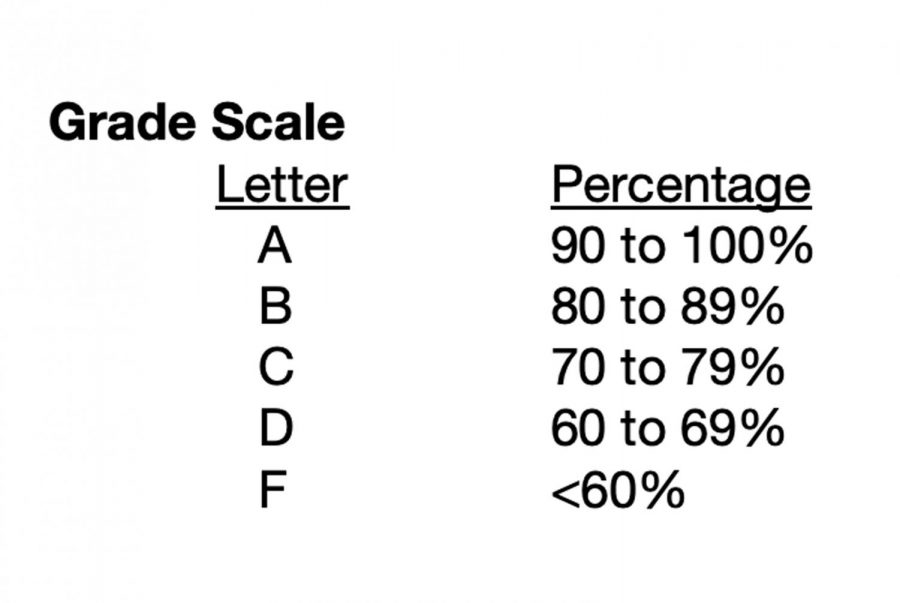Update: March 26, 11:02 a.m.
Any decision to move grading to a pass/fail system within California Community Colleges must be done at the state level by the state chancellor.
_______________
With COVID-19 forcing college courses online, adhering to any variation of the traditional “A- F” grading system would seem questionable on the part of educational institutions. There is no fair route forward for students to continue classes as if Spring 2020 didn’t just get blindsided by a life-altering pandemic. Districts must act quickly and temporarily transition to a pass/fail grading system. This approach generally justifies “passing” when students achieve an A, B, C, or D in the course, without affecting a student’s GPA. Anything else would be unethical.
San Diego Mesa College, which prides itself on being a leader in fairness, finds its motto being challenged. While San Diego Community College District (SDCCD) has made great strides in adapting to “stay-at-home” orders in moving all 6,200 courses online, students are now wondering how their performance will be measured in this completely new environment.
As students log in for their first week of online instruction, after a week-long emergency break, professors scramble to drop assignments and available points to accommodate this difficult transition. The course expectations students agreed to at the start of the semester no longer apply to this drastically altered education plan.
It has already become clear that student participation in these adapted online courses doesn’t come close to in-person discussions. Even with the most engaged professors, the Zoom meetings are relatively quiet. Whatever the reasoning (job loss, emotional distress, family trouble), it’s understandably different. Moreover, many students are also faced with new obstacles that should not be held against them.
At home, certain circumstances will trigger new problems that will make learning more arduous. For parents, school closures mean balancing college with homeschooling children. Students without home computers must now sign up for loaned technology, if they even have a home to start with. And self-isolation can be especially difficult for those struggling with mental health.
However proactive SDCCD has been with offering online tutoring and other resources like providing equipment at home, those with learning disabilities will undoubtably have a disadvantage. These individuals process information differently, and by deviating from consistency in coursework just six weeks into the semester, the district risks losing these students to an already high national dropout rate.
We must also consider the hardships based in removing campus resources like a physical library, in-person counseling, and the safe space that Mesa represents for many students with difficult home lives. Without those crucial support elements, the most vulnerable students may be left behind as other, more privileged students more readily adjust to new grading expectations. And while some may hope that courses return to in-person instruction later this semester, asking students, faculty, and staff to return anytime this spring would be wildly inappropriate knowing the information on this new, contagious virus.
Prominent institutions like Columbia, Harvard, Dartmouth, and UC Berkeley have already announced a semester-long change to mandatory pass/fail grading. Those decisions were done with fairness in mind and should be taken as an example for all colleges. Professors within SDCCD are instead left to revise syllabi, as no official word on grading concerns has come from the administration.
This neglect to rework grading at the district level only enhances uncertainty and stress for students within SDCCD in an already very uncertain time. With course drop dates well in the past, adjusting to online learning within the same grading rubric seems to be the only option that the administration is presenting.
The whole point of community college is that its guidelines are created to foster a fair learning experience, no matter a student’s background. Moving forward without reexamining how student performance is measured would be risking the creation of much larger problems down the line. These grades will affect a student’s trajectory of transferring to a four-year university after graduating from their respective institution. It will also impact future job opportunities for anyone who isn’t able to simply log on and adjust accordingly.
SDCCD must continue be a leader in advocating for a fair system during these trying times. Without that leadership, all students will undoubtably suffer, with students with the least resources getting hit the hardest.


